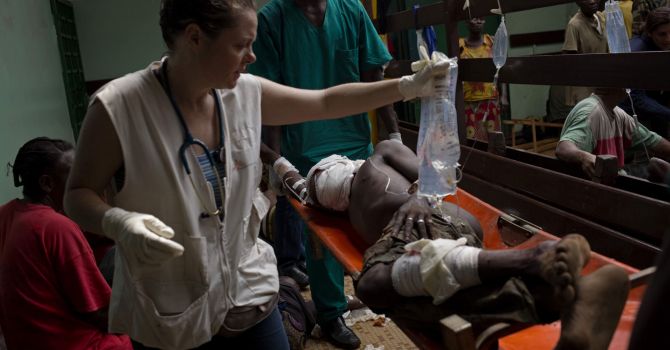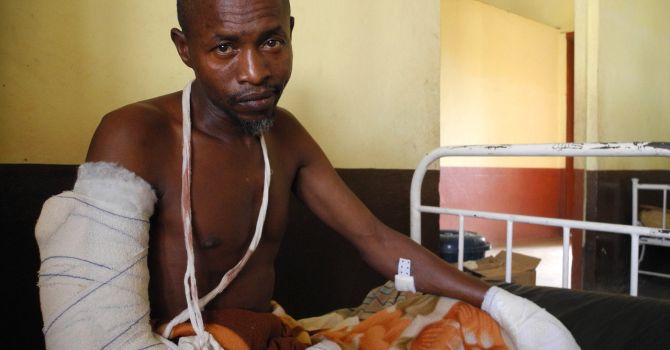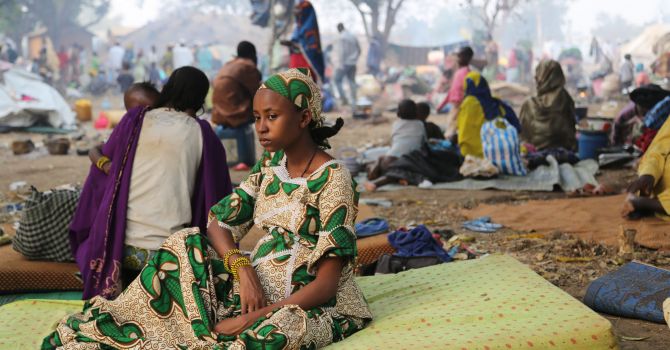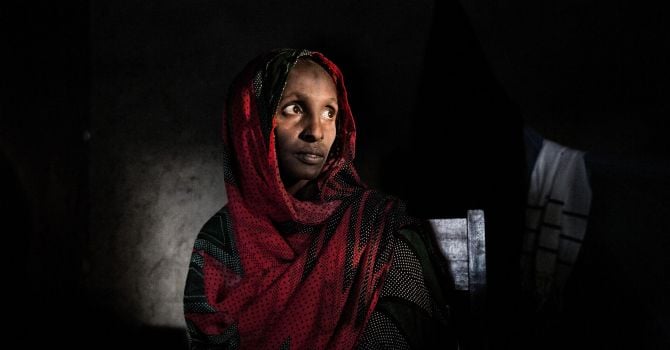
Since atrocious fighting broke out in Bangui, the capital of the Central African Republic (CAR) in early December 2013, inter-communal violence has swept the country and reached unprecedented levels. Civilians are being targeted – villages burned, women raped and people killed – all communities are slipping into this humanitarian catastrophe.
More than 1.2 million people – 25% of the population – have fled their homes. With the few existing health facilities being looted and destroyed, healthcare is hardly accessible. Half the country is now in desperate need of emergency aid.
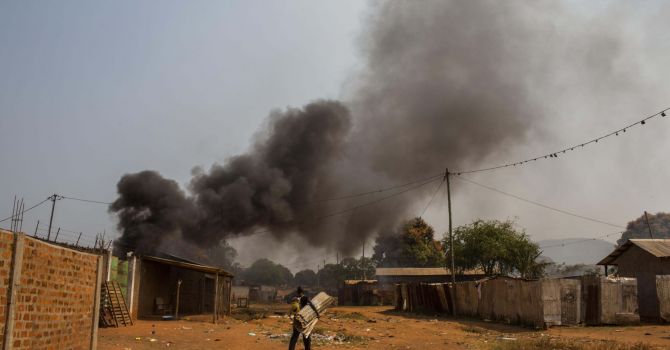
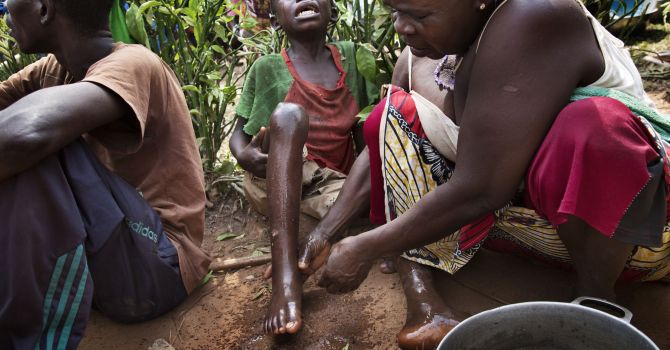
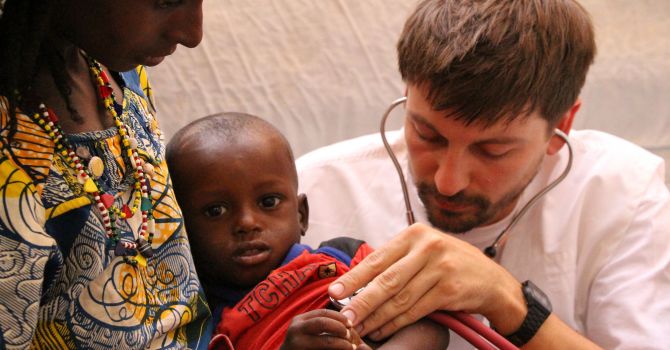
“When I was in Bozoum, we found 17 injured people with wounds from gunshots, machetes, and a grenade, hiding in a small courtyard. They were too scared to go to the hospital in case they were targeted again. Their injuries were serious—yet they were all sitting in silence, bleeding. That's how terrified people are of seeking medical care. They just sat there in silence, having lost all hope.”
- Dr. Joanne LIU, MSF International President, who visited MSF projects in Central African Republic in February 2014
“That morning we went out in our ambulances driving through the town in search of injured people…in that torrential rain we watched, as we drove past corners and avenues, dozens of dead bodies piled up in the streets. Some of them had been tied up and killed in cold blood opposite Hôpital Amitié, others were half naked and left as a warning for all passers-by. The rain splashed the streets with the mud concealing the blood…”
- Jose Mas COMPOS, MSF Emergency Coordinator in Bangui, Central African Republic
“I managed to go to the market. On my way back I was told that our neighborhood was being attacked. I met with my older brother and some neighbors gave us a lift in their truck. The two vehicles behind us in the convoy were hit by grenades. They finally reached the airport. It was horrible, everybody was running, I ran too to reach the plane."
- 18-year-old Mahmat planned to flee to Chad with his brother, but was separated from him at the airport and has not had any news since
